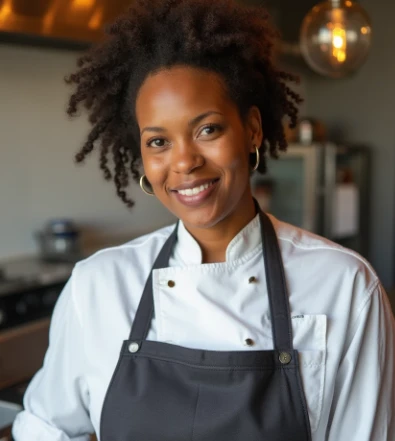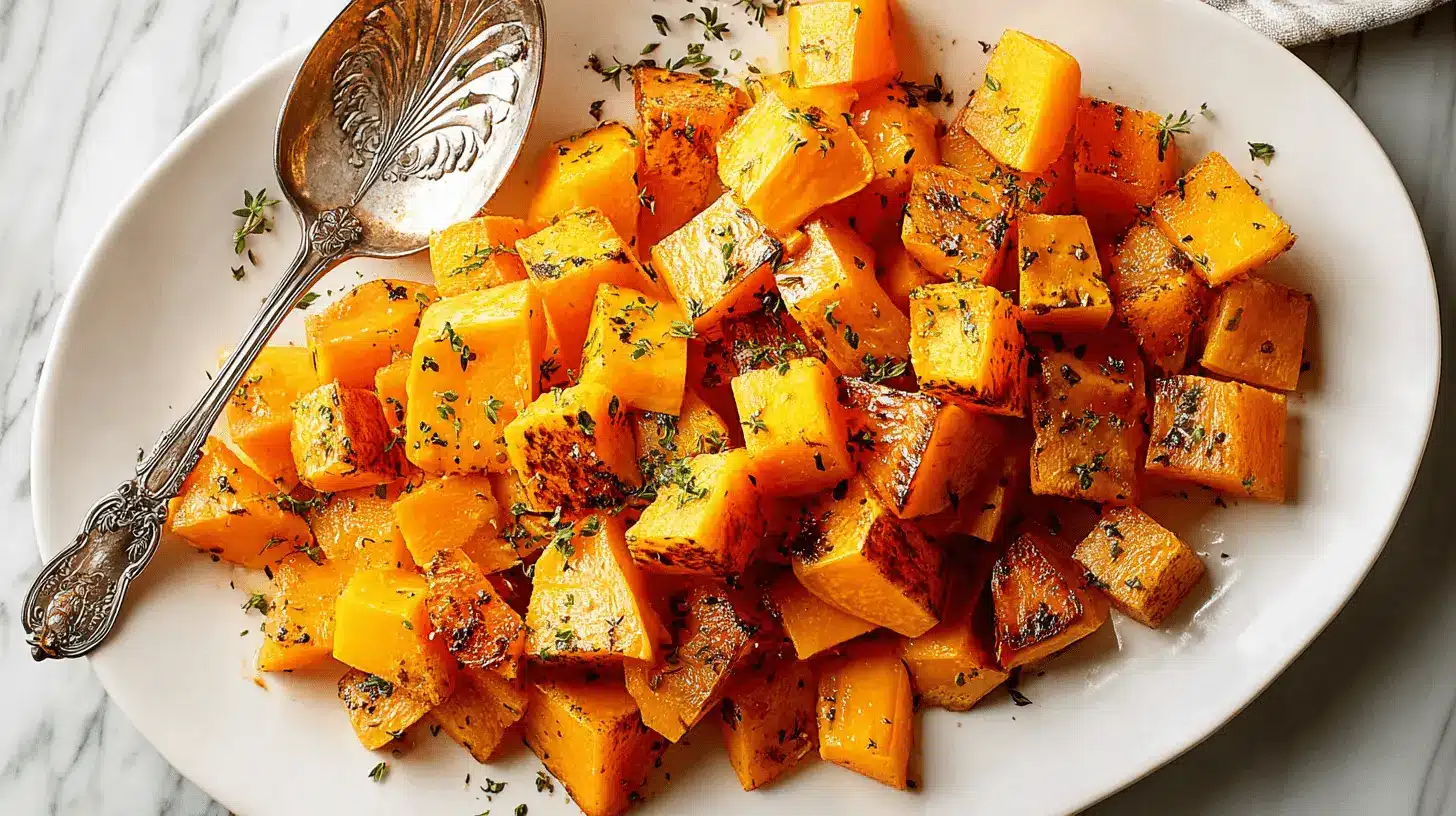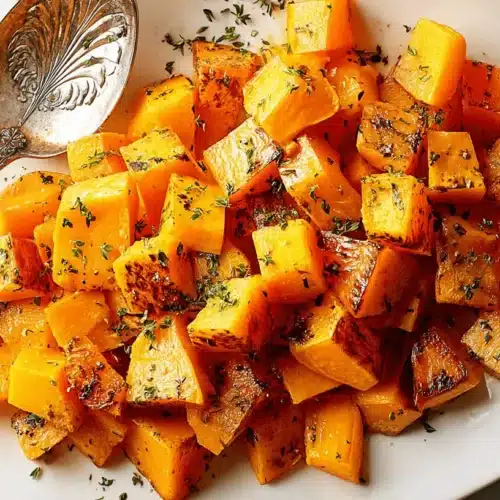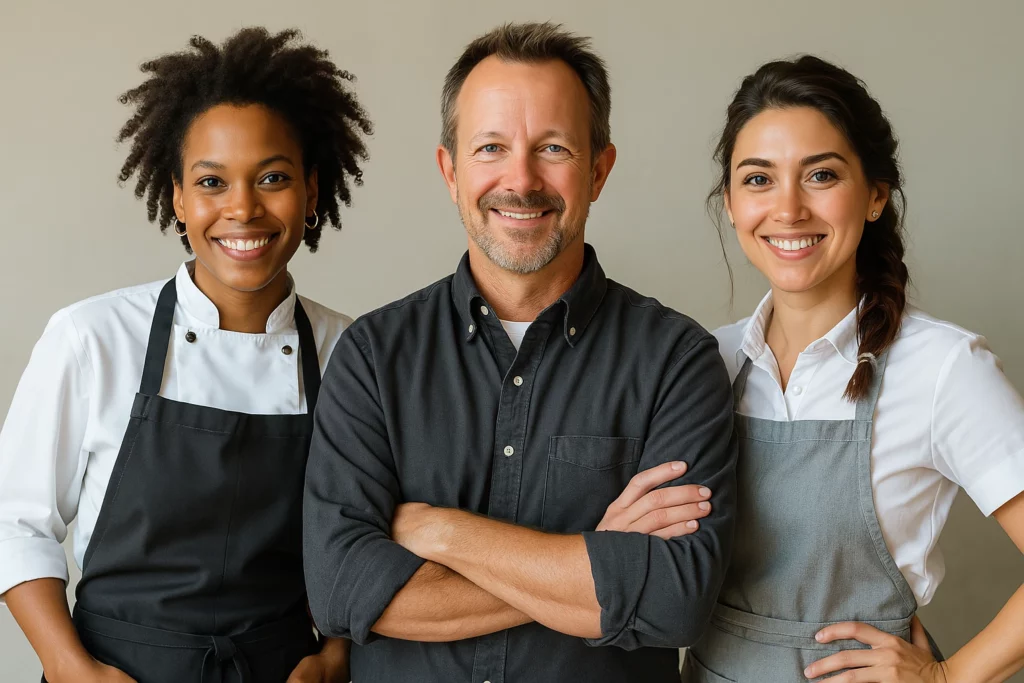Table of Contents
Discover the irresistible charm of roasted butternut squash. This simple recipe transforms humble squash into a culinary delight, boasting a naturally sweet, nutty flavor profile. It is incredibly easy to prepare and remarkably versatile, making it a perfect addition to any meal. Get ready to enjoy a wholesome and delicious dish.
Why You’ll Love This Roasted Butternut Squash Recipe
This roasted butternut squash recipe is a true winner for many reasons. We believe you will absolutely love it!
- It is incredibly easy to prepare with just a few basic ingredients you likely have on hand.
- This dish is healthy, naturally sweet, and packed with essential nutrients for your family.
- The versatility of roasted butternut squash means you can enjoy it in countless dishes, from sides to main courses.
- It serves as a perfect, comforting side dish, especially during the cozy fall and winter months.
- You will achieve beautifully caramelized edges and a wonderfully tender interior every time you make it.
Ingredients
To make the best roasted butternut squash, you only need a handful of fresh ingredients. This recipe keeps things simple, letting the natural flavor of the squash shine through.
- Butternut squash: One whole, medium-sized squash. Look for firm, unblemished skin.
- Olive oil: Extra-virgin, for drizzling. It helps achieve a golden, crispy exterior.
- Sea salt: To taste. Enhances the squash’s sweetness.
- Black pepper: Freshly ground, to taste. Adds a subtle warmth.
- Fresh parsley: Chopped, optional for garnish. Brightens the finished dish.
Notes & Substitutions
When choosing your squash, always select one that feels heavy for its size and has a firm, smooth skin free of soft spots or cracks. For the olive oil, extra-virgin provides the best flavor, but avocado oil or grapeseed oil also work well due to their high smoke points. The simple seasonings of salt and pepper truly allow the pure, sweet flavor of the squash to come through. However, feel free to experiment with flavor additions like a sprig of fresh rosemary or a few thyme leaves tossed with the squash before roasting.
Equipment
Gathering your tools before you start makes the cooking process smoother. Here is what you will need for this roasted butternut squash recipe:
- Sharp vegetable peeler
- Large cutting board
- Sharp knife
- Large baking sheet(s)
- Parchment paper (optional, but highly recommended for easy cleanup)
Instructions
Creating perfectly roasted butternut squash is incredibly straightforward. Follow these steps for tender, caramelized results every time. This beginner-friendly guide ensures success in your kitchen.
First, preheat your oven to 400°F (200°C). While the oven heats, line a large baking sheet with parchment paper. This simple step prevents sticking and makes cleanup a breeze. If you are roasting a lot of squash, use two baking sheets to avoid overcrowding.
Next, prepare the squash. Start by carefully peeling the butternut squash using a sharp vegetable peeler. It helps to trim a small slice off both ends first to create a stable base. Then, stand the squash upright and peel downwards. Once peeled, place the squash on your cutting board. Trim off both ends again. Slice the squash in half lengthwise from top to bottom. Use a sturdy spoon to scoop out the seeds and stringy bits from the center of each half. Discard these fibrous parts.
Now, cut the squash into even 1-inch cubes. Uniformly sized pieces are key for even cooking, ensuring every bite of your roasted butternut squash is tender. If pieces are too small, they might burn; if too large, they may not cook through. Aim for consistent cubes.
Place all the cubed squash onto your prepared baking sheet. Drizzle generously with extra-virgin olive oil. You want each piece lightly coated. Sprinkle with sea salt and freshly ground black pepper to taste. Use your hands to toss everything together thoroughly, ensuring all the squash cubes are evenly seasoned.
Finally, arrange the seasoned squash in a single layer on the baking sheet. Make sure the cubes are spread out and not touching too much. Overcrowding the pan will steam the squash instead of roasting, preventing those delicious caramelized edges. If necessary, use a second baking sheet. Roast the squash for 30 to 35 minutes, or until it is fork-tender and beautifully golden brown with caramelized edges. A well-roasted butternut squash will have a slightly browned exterior.
Pro Tips for Perfectly Roasted Butternut Squash
Achieving perfectly roasted butternut squash is simple with a few smart techniques. These tips ensure you get those coveted tender insides and crispy, caramelized edges.
- Even dicing: Always aim for uniform 1-inch cubes. This ensures all pieces cook at the same rate.
- Don’t overcrowd: Spread the squash in a single layer on the baking sheet. Too many pieces will steam, not roast, leading to soggy results.
- High heat: Roasting at 400°F (200°C) is crucial for developing delicious caramelization and a tender texture.
- Check for doneness: Pierce a piece with a fork. It should slide in easily, indicating the squash is tender throughout.
- Optional seasonings: Elevate the flavor by adding a pinch of cinnamon or nutmeg for a sweeter profile, or a drizzle of maple syrup during the last 10 minutes of roasting.
Serving Suggestions, Storage, and Variations
Once you master roasted butternut squash, its versatility truly shines. Here are some ideas for enjoying your delicious creation.
Serving Suggestions
- Serve it simply as a warm, comforting side dish alongside any main course.
- Add roasted squash cubes to fresh grain bowls or vibrant autumn salads for extra texture and sweetness.
- Stir the tender squash into pasta dishes with sage and brown butter for a hearty meal.
- Blend the roasted cubes into creamy soups or a sweet, earthy hummus spread.
- Use them as a flavorful filling in vegetarian tacos or enchiladas.
Storage & Meal Prep
Store any leftover roasted butternut squash in an airtight container in the refrigerator for up to 3-4 days. For longer storage, you can freeze roasted squash for up to 3 months. To freeze, spread cooled squash on a baking sheet and freeze until solid, then transfer to a freezer-safe bag. Reheat refrigerated squash in the microwave or briefly in a preheated oven.
Flavor Variations
- Sweet: Enhance the natural sweetness by tossing the squash with a pinch of cinnamon, a dash of nutmeg, or a tablespoon of maple syrup before roasting.
- Savory: For a more savory profile, add garlic powder, onion powder, smoked paprika, or a touch of cumin to your seasonings.
- Spicy: If you love a kick, sprinkle with a pinch of cayenne pepper or some red chili flakes before roasting.
Nutrition Information
Roasted butternut squash is not only delicious but also incredibly healthy. It is a fantastic source of essential vitamins, especially Vitamin A and C, and is rich in dietary fiber, which aids digestion. This naturally sweet vegetable is also low in calories and fat, making it a guilt-free addition to any meal. It’s suitable for various dietary needs, including vegan, vegetarian, and gluten-free diets.
The Cleveland Clinic highlights that butternut squash is one of the best foods for eye health and offers a wealth of vitamins A, C, and E, all providing antioxidant benefits. Learn more about the health benefits of butternut squash.
| Nutrient | Per Serving (approx.) |
|---|---|
| Calories | 80 kcal |
| Total Fat | 3g |
| Saturated Fat | 0.5g |
| Cholesterol | 0mg |
| Sodium | 10mg |
| Total Carbs | 15g |
| Dietary Fiber | 3g |
| Total Sugars | 3g |
| Protein | 2g |
| Vitamin A | 150% DV |
| Vitamin C | 40% DV |
Nutritional values are approximate and may vary based on exact ingredients and preparation.
Frequently Asked Questions (FAQ)
Do I have to peel butternut squash?
Yes, for roasting, it is generally best to peel the squash. The skin can become tough and chewy after roasting, affecting the overall texture.
What is the best way to cut butternut squash?
To cut safely, trim the ends first, then peel. Halve it lengthwise, scoop out the seeds, and then dice into even 1-inch cubes for uniform cooking.
Can I roast butternut squash with the skin on?
While technically possible, we recommend peeling for a more tender result. Unpeeled squash skin remains firm and can be less pleasant to eat.
How do I know when butternut squash is cooked?
Your roasted butternut squash is done when the cubes are fork-tender and have developed beautiful golden-brown, caramelized edges.
Can I use frozen butternut squash?
Yes, you can use frozen cubed butternut squash. Thaw it completely, pat it dry to remove excess moisture, then proceed with the recipe as directed.
More Delicious Roasted Vegetable Recipes
If you love the simplicity and flavor of roasted butternut squash, you will enjoy these other easy roasted vegetable recipes:
- Roasted Brussels Sprouts with Balsamic Glaze
- Sheet Pan Roasted Carrots and Parsnips
- Crispy Roasted Broccoli with Lemon
- Perfectly Roasted Asparagus
- Garlic Herb Roasted Potatoes
Conclusion
Mastering roasted butternut squash is a culinary triumph that brings warmth and flavor to any table. This easy, beginner-friendly recipe ensures tender, caramelized squash every time. We encourage you to try this simple method and discover the sweet, nutty delight of perfectly roasted butternut squash. It’s a versatile, healthy, and delicious addition to your meal rotation!
Perfectly Roasted Butternut Squash
Equipment
- Oven
- Large Baking Sheet
- Parchment Paper
Ingredients
Main Ingredients
- 1 butternut squash peeled, seeds scooped, and cubed
- Extra-virgin olive oil for drizzling
- Sea salt and freshly ground black pepper
- fresh parsley optional, for garnish
Instructions
Preparation
- Preheat the oven to 400°F and line a large baking sheet with parchment paper.
Roasting
- Place the squash cubes on the baking sheet, toss with a drizzle of olive oil, salt, and pepper, then roast for 30 to 35 minutes until golden brown.
Notes

Amelia Johnson is a 28-year-old chef from New Orleans, Louisiana, known for her innovative take on traditional American cuisine. Growing up in a family that celebrated food, she developed a passion for cooking early on, experimenting with recipes from her grandmother. After graduating from culinary school, Amelia honed her skills in top restaurants, where her talent quickly gained acclaim for its creative dishes. With a focus on seasonal ingredients and bold flavors, she inspires others through cooking workshops, sharing her love for food and the rich diversity of American cuisine.



